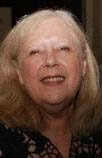 I spied a traveler holding the book "Guns, Germs, and Steel" as we boarded a plane for Washington.
I spied a traveler holding the book "Guns, Germs, and Steel" as we boarded a plane for Washington. Then my traveling partner and fellow author Dorothy Fletcher told me she heard it was a good book. We were in D.C. for several days, and happened to spy a bookstore The Trover Shop. So I picked up a copy of Jared Diamond’s nonfiction book about, as the subtitle says, “The Fates of Human Societies.”
That was last week. I’m still reading.
There’s a standing joke among family members that if it takes me longer than a day to read a book, I’ll be the only one who reads it.
I’m finding Diamond’s book interesting, but he is admittedly a tedious writer. An example occurs on page 55, after he’s told an interesting tale about how the Maori brutally conquered the Moriori on the Chatham Islands, 500 miles east of New Zealand, in 1835. Both cultures stemmed from common ancestry of Polynesian peoples, so it’s interesting to compare why one group became peaceful and the other liked to kill people.
The author calls this event a “natural experiment that tests how environments affect human societies.”
It’s a straightforward passage. But possibly assuming his readers are dull of mind, Diamond goes into an explanation of the value of comparing the two groups by over-explanation, using experiments with rats as an example.
So far, I have a mental redliner going as I read. Of course, that’s typical of any writer—mental redlining, chopping, rearranging. We always think we could say it better.
But it is a fascinating book, winner of the Phi Beta Kappa Award in Science as well as a Pulitzer.
It doesn’t pack the wham for me though that another challenging nonfiction work did, Simon Winchester’s “Krakatoa.” I couldn’t put that book down. I never knew a volcano could be so interesting and could, for centuries after blowing, impact history. And it was definitely a challenge to read.
On the other hand, a book also touching on why societies evolved as they did is John Keegan’s remarkable “A History of Warfare.” Sir John Keegan is British, so his sentences are multi-layered, very much unlike those of most American nonfiction writers. But that book, complex syntax and all, for me, was a page turner.
Early on, Diamond annoyed me with a dig towards everybody’s favorite global whipping boy, Western civilization. “Today,” he writes, “segments of Western society publicly repudiate racism. Yet many (perhaps most!) Westerners continue to accept racist explanations privately or subconsciously.”
I’m guessing Easterners and Middle-Easterners would never do that, right? How about the Maori?
Sometimes I wish all men of science were forced to read more poetry.
It strikes me as amazing, since we have millennia of history behind us, we haven’t learned that man will be man no matter where he is. So many of the problems I see today are not a result of culture or geography. They’re a result of the human condition.
I resent conclusions being drawn about my “subconscious” and how does a person I’ve never spoken to know what I think privately? If it appears I'm taking this personally, I'd like to gently remind the reader my culture and heritage are Western.
But I’m plowing through Diamond’s book, and so far, it is interesting. I wish I’d been able to find it in hardcover. The bookstore only had the paperback and it’s a big fat book. Big books are easier to hold and read when the cover is sturdy.


